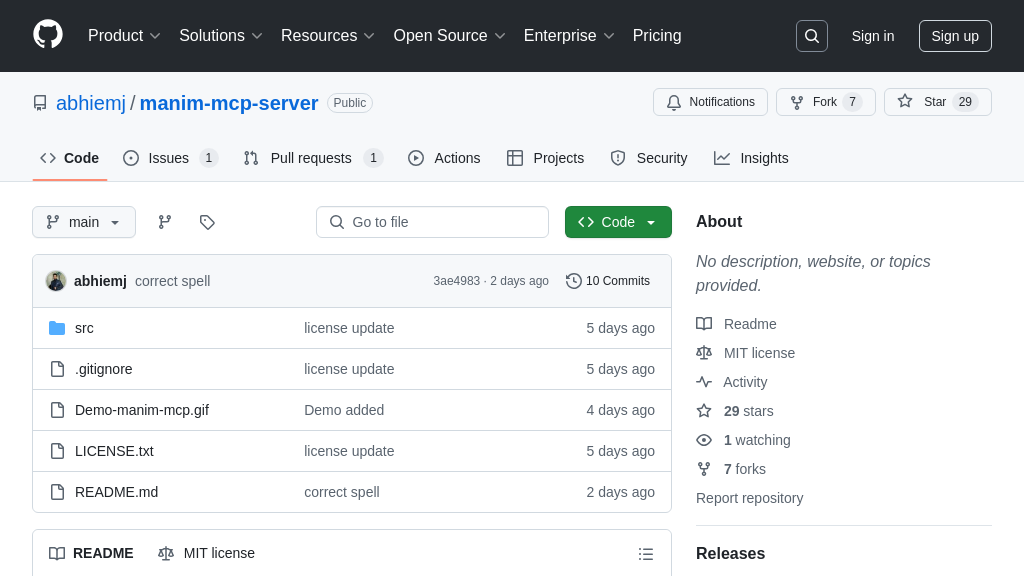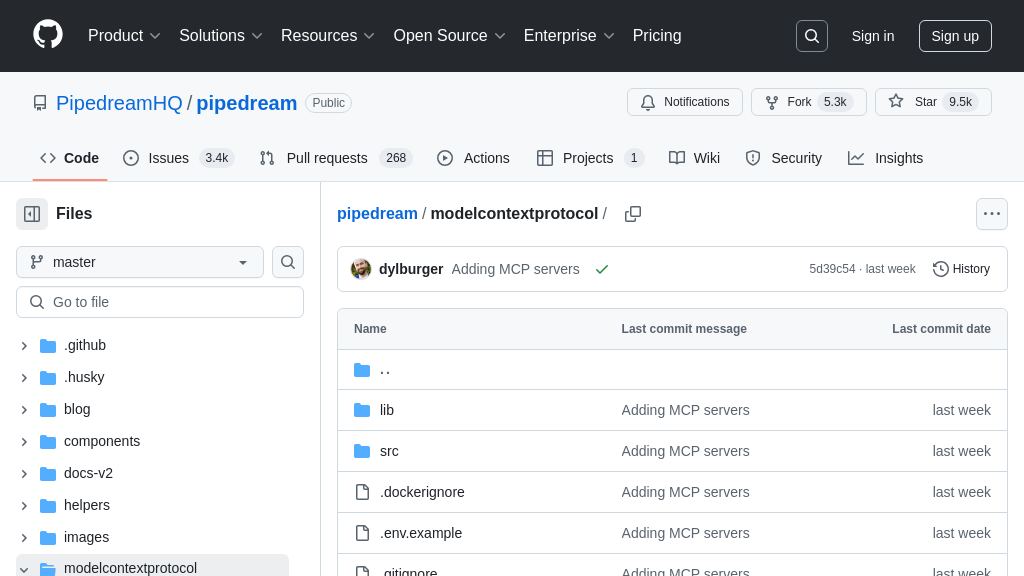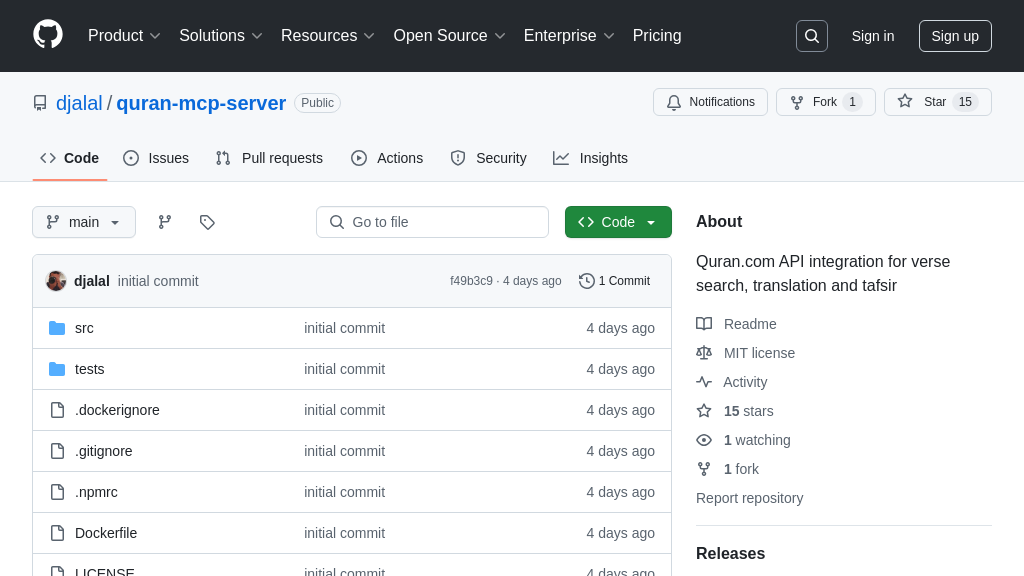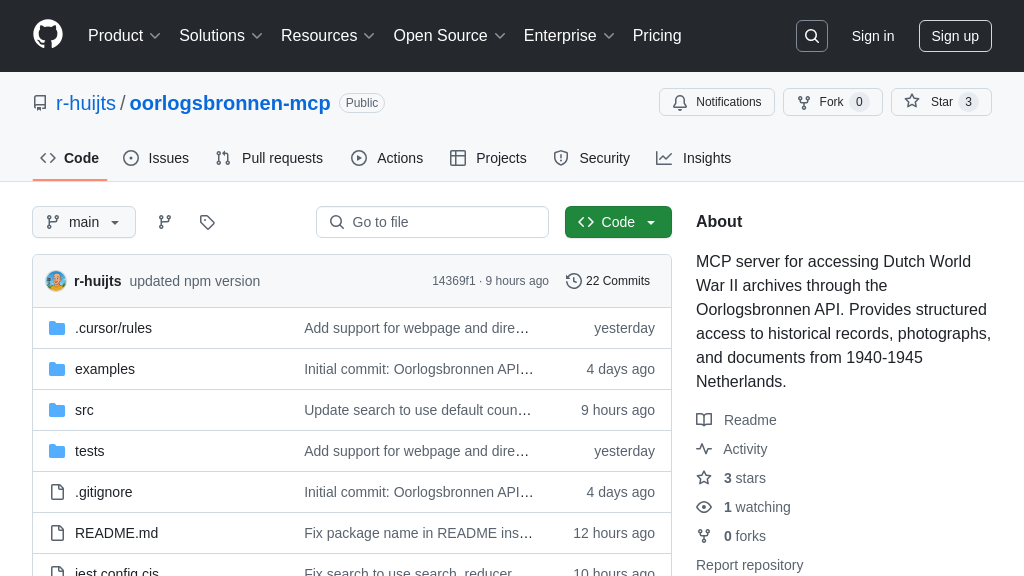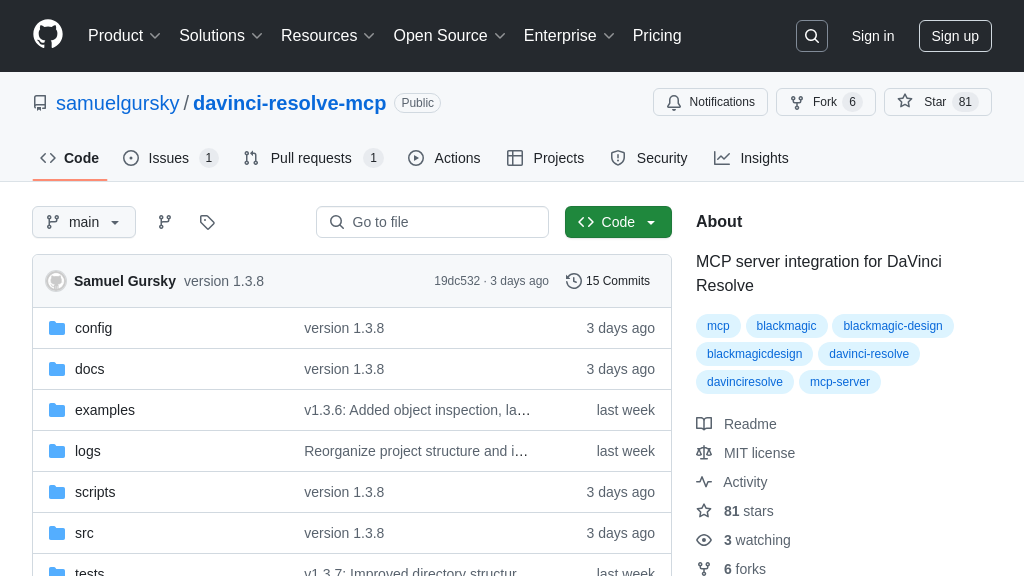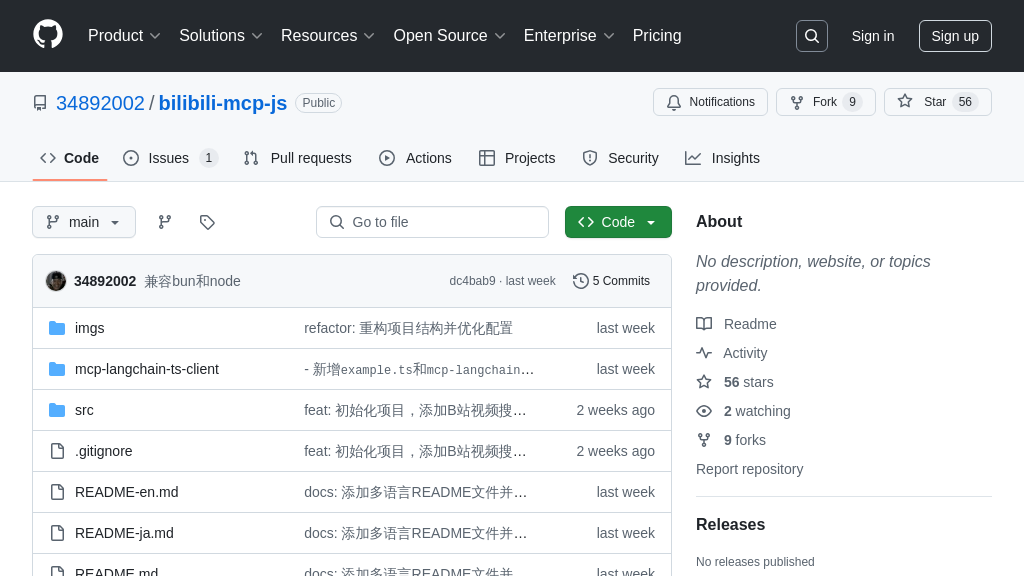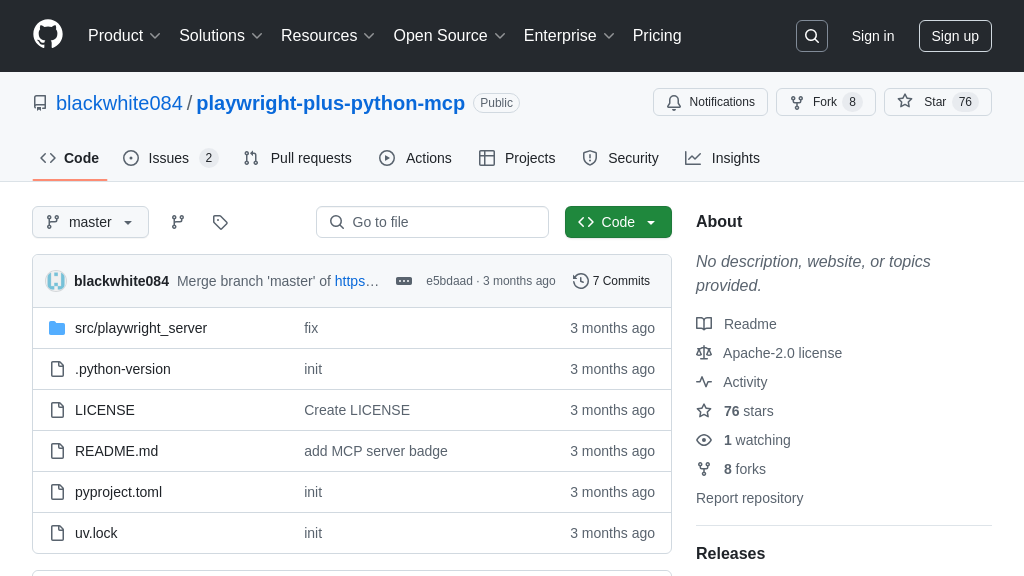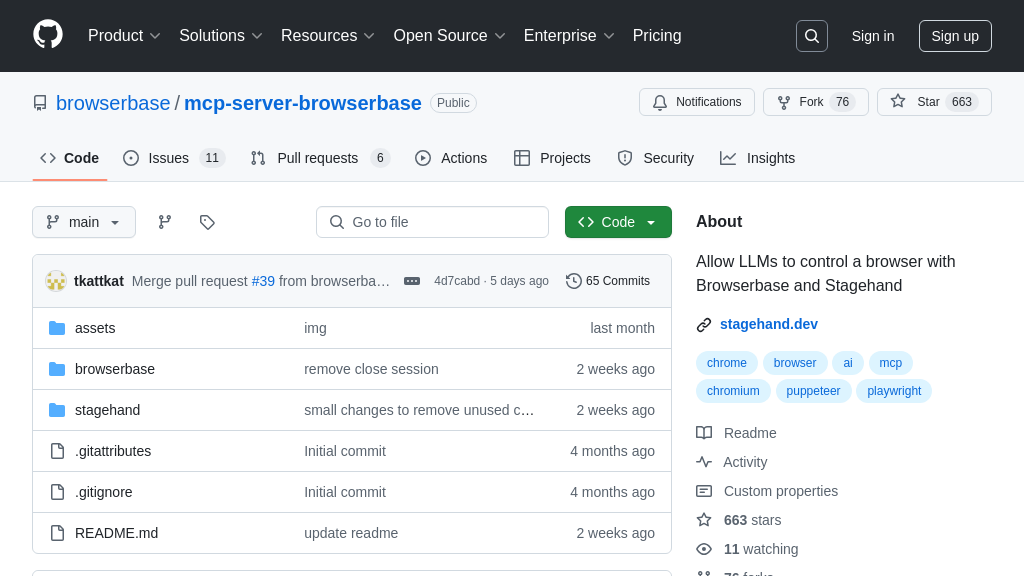mcp-typescribe
MCP-Typescribe: An open-source MCP Server for LLMs to access API information, enabling faster SDK onboarding.
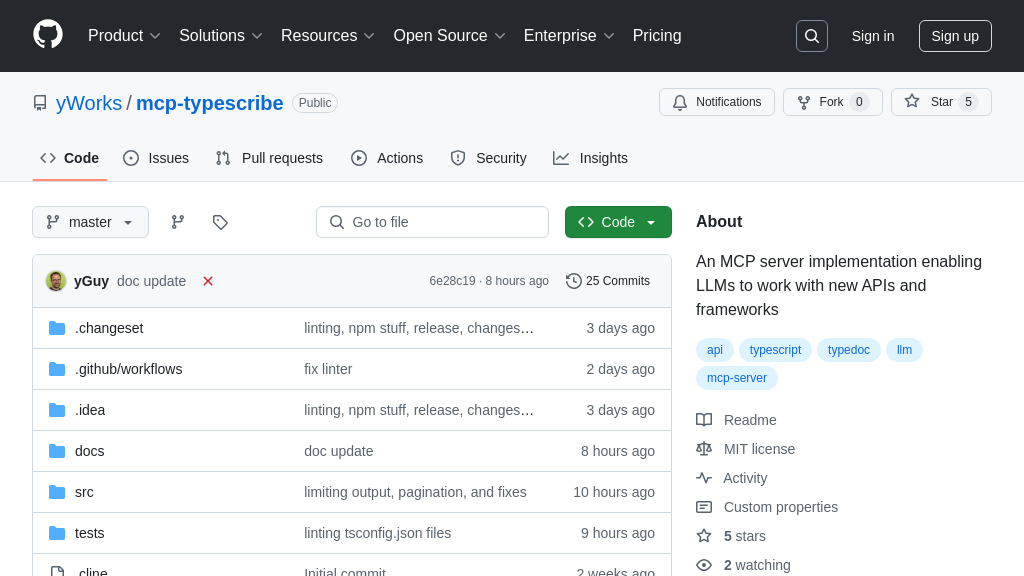
mcp-typescribe Solution Overview
MCP-Typescribe is an open-source MCP Server designed to empower Large Language Models (LLMs) with real-time access to API information, particularly TypeScript definitions. It addresses the challenge of LLMs struggling with unfamiliar APIs due to limitations in their training data. By parsing TypeScript definitions into a machine-readable format, MCP-Typescribe dynamically serves this context to LLMs, enabling them to query, plan, and adapt to new APIs without retraining.
This server integrates seamlessly with AI agents through the Model Context Protocol, offering comprehensive query capabilities like symbol search, detailed information retrieval, and usage finding. The core value lies in facilitating faster onboarding of new SDKs, providing plug-and-play API support for coding assistants, and paving the way for more autonomous, context-aware coding agents. MCP-Typescribe leverages TypeDoc integration for efficient querying and can be easily integrated into existing workflows with tools like Cline, Cursor, or Windsurf.
mcp-typescribe Key Capabilities
API Discovery via TypeDoc
MCP-Typescribe leverages TypeDoc to parse TypeScript definitions into a machine-readable format, enabling LLMs to understand API structures and functionalities. This integration allows the server to index and serve API documentation efficiently. By converting TypeScript code into structured data, MCP-Typescribe provides a comprehensive view of available classes, interfaces, functions, and their properties. This process ensures that LLMs can access detailed information about each API element, including its purpose, parameters, and return types. The use of TypeDoc ensures that the documentation is consistent and up-to-date with the codebase.
For example, a developer can use TypeDoc to generate API documentation for a React component library. MCP-Typescribe can then ingest this documentation, allowing an LLM-powered code assistant to provide accurate suggestions and explanations for using the library's components. This significantly reduces the learning curve for developers unfamiliar with the library.
Real-time Contextual API Access
MCP-Typescribe provides LLMs with real-time, contextual access to API documentation, allowing them to query and understand APIs on demand. This eliminates the need for LLMs to rely solely on their training data, which may be outdated or incomplete. By serving API information dynamically, MCP-Typescribe ensures that LLMs always have access to the most current documentation. This capability is crucial for enabling LLMs to effectively use new or updated APIs without requiring retraining. The server supports various query capabilities, including searching for symbols by name, retrieving detailed information about specific symbols, and listing members of classes or interfaces.
Consider a scenario where a new version of a payment processing API is released with updated methods and parameters. MCP-Typescribe can provide an LLM with the necessary context to understand and use these new features immediately, enabling the LLM to generate accurate code snippets and documentation. This real-time access ensures that the LLM can adapt to changes in the API landscape without delay.
Comprehensive API Query Tools
MCP-Typescribe offers a suite of tools for exploring TypeScript APIs, enabling LLMs to perform detailed queries and retrieve specific information. These tools include functionalities for searching symbols, getting symbol details, listing members, finding implementations, searching by return type, searching by description, getting type hierarchy, and finding usages. This comprehensive set of query capabilities allows LLMs to deeply understand the structure and behavior of APIs. By providing a wide range of search options, MCP-Typescribe ensures that LLMs can efficiently find the information they need to generate accurate and relevant code.
For instance, an LLM can use the search_by_return_type tool to find all functions that return a specific type, such as a promise. This allows the LLM to identify asynchronous operations within the API and handle them appropriately. Similarly, the find_usages tool can be used to determine how a particular function or type is used throughout the codebase, providing valuable context for understanding its role and behavior.
MCP Protocol Compliance
MCP-Typescribe adheres to the Model Context Protocol (MCP), ensuring seamless integration with AI agents and other MCP-compliant tools. This compliance allows MCP-Typescribe to function as a standardized interface between LLMs and API documentation. By following the MCP, MCP-Typescribe ensures that it can be easily integrated into existing AI workflows and development environments. This standardization simplifies the process of connecting LLMs to external data sources and services, promoting interoperability and reducing integration costs.
For example, an AI-powered code assistant that supports the MCP can seamlessly connect to MCP-Typescribe to access API documentation. This allows the code assistant to provide accurate suggestions and explanations for using the API, without requiring any custom integration code. The MCP compliance ensures that MCP-Typescribe can be used with a wide range of AI tools and platforms.
